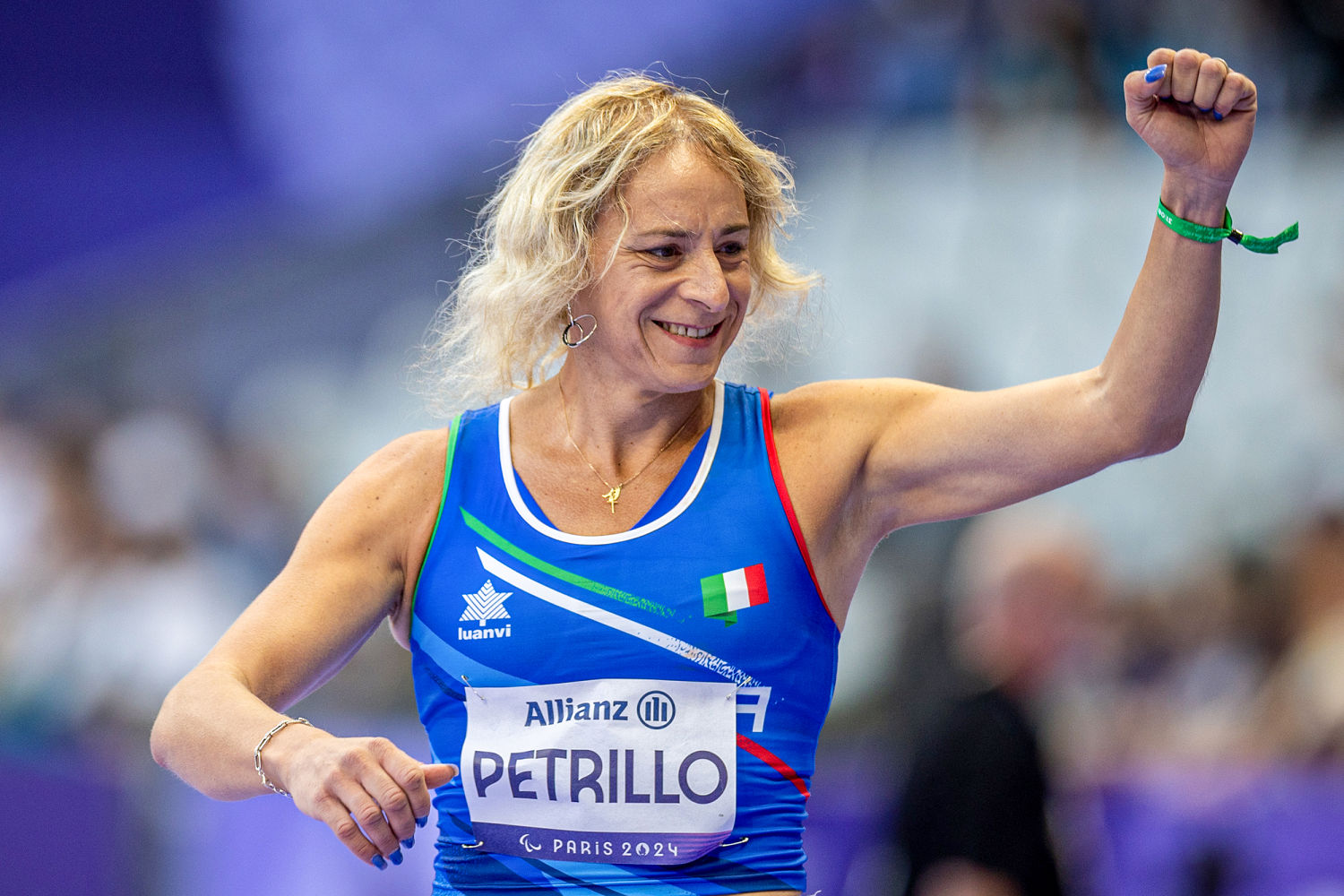
Visually impaired transgender sprinter Valentina Petrillo said she felt welcomed by her fellow competitors despite the widespread scrutiny outside of the Paralympic village in France.
The 51-year-old sprinter, who transitioned in 2019, reached T12 200m and 400m semi-finals at the recent Paralympic Games in Paris.
Petrillo’s participation was criticized, with writer JK Rowling labeling her an “out and proud cheat” but the Italian said in an interview with the Times newspaper the support she encountered within the Stade de France was heartening.
“It was the perfect life. It was beautiful. I was welcomed by everybody,” Petrillo said as she prepared to leave the village for the final time. “Outside, we know it’s not going to be the same.
“I hope this can be the start of a transformation for transgender people.”
Having already endured harassment back at home, Petrillo said she had anticipated some backlash stepping into the public spotlight but suggested that any transphobia in sport is a result of fear-mongering.
“JK Rowling is only concerned about the fact that I use the female toilet, but she doesn’t know anything about me,” Petrillo said.
“And there has only been one (openly transgender) person that has participated at the Paralympics, me. So all of this fear that trans people will destroy the world (of women’s sport) actually does not exist.
“People said (lots of) men would go to compete as women just so they could win, but that has not happened at all. It is just transphobia.”
The International Paralympic Committee (IPC) confirmed that Dutch discus thrower Ingrid van Kranen was the first transgender Paralympian, who competed at the Rio Paralympics in 2016 and died in 2021.
The situation with Van Kranen differed considerably as her transition was not openly known. Over the last few years, the discourse around transgender athletes has garnered widespread attention.
The governing bodies of many sports including athletics, cycling and swimming have tightened their participation rules for transgender athletes in elite women’s competitions.
However, the IPC allows governing bodies to set their own policies and World Para Athletics permits an individual legally recognized as a woman to compete in the category for which their impairment qualifies them.
Critics say going through male puberty imbues athletes with a huge musculo-skeletal advantage that transition does not mitigate.
LGBTQ advocacy groups say excluding trans athletes amounts to discrimination and that not enough research has been done into the impact of transition on athletic performance.

